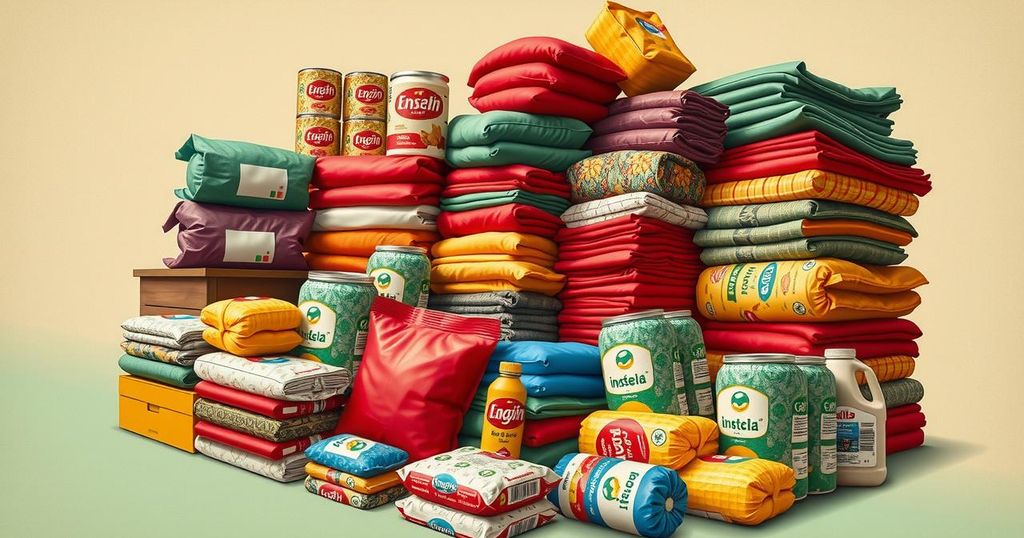Nigerians’ N21 Trillion Import Expenditure: A Reflection of Dependency on Foreign Goods

Nigerians expended N21.51 trillion on imports in four years, emphasizing rising reliance despite local production efforts. Key expenditures include prepared foods, animal products, and plastics, all reflecting ongoing challenges in boosting domestic industries.
The National Bureau of Statistics has reported that Nigerians expended a total of N21.51 trillion on the importation of goods, prominently food, over the last four years. This expenditure underscores a growing reliance on imports, despite efforts to enhance local production capabilities across various sectors.
Out of the total amount, expenditures on prepared foodstuffs, beverages, spirits, vinegar, and tobacco reached N6.77 trillion. This spending increased notably from N594.08 billion in 2020 to N2.79 trillion in 2024, indicating a continuous upward trend in food imports.
Additionally, the importation of live animals and animal products saw significant increases, totaling N3.64 trillion. The spending in this category escalated from N454.52 billion in 2020 to N1.49 trillion in 2024, highlighting heightened demand for animal-based imports.
Smaller import categories also exhibited growth; for instance, the expenditure on footwear, headgear, umbrellas, and sunshades rose from N23 billion in 2020 to N65 billion in 2024. Overall spending in this group reached N167 billion during the four-year period.
Furthermore, imports related to plastics, rubber, and similar articles accounted for the most substantial expenditure, totaling N7.72 trillion. Starting from N609 billion in 2020, spending in this category surged to N3.46 trillion by 2024.
In the textiles sector, which historically thrived in Nigeria, the importation costs amounted to N1.93 trillion over four years, climbing from N183 billion in 2020 to N726 billion in 2024. This trend raises concerns about the decline of domestic textile production.
The importation of wood and related products, including charcoal, totaled N909 billion, with a significant expenditure increase from N52 billion in 2020 to N517 billion in 2024. Moreover, Nigeria spent N373 billion on raw hides, skins, leather, and saddlery products, growing from N30 billion in 2020 to N157 billion in 2024.
These statistics reveal Nigeria’s ongoing dependence on imported goods, despite governmental policies aiming to strengthen local production. The rising figures reflect the challenges faced in various sectors and the urgent need for initiatives to promote domestic manufacturing.
In summary, Nigerians have spent an alarming N21.51 trillion on goods imports over the past four years, with a significant portion allocated to food and other essentials. The clear increases across numerous sectors, including foodstuffs, plastics, and textiles, demonstrate a troubling reliance on foreign products, despite government efforts to support local production. These insights call for a reevaluation of current policies to foster sustainable domestic industries and reduce import dependency.
Original Source: punchng.com








